Covid-19: How Northern Ireland's restrictions affect you
- Published
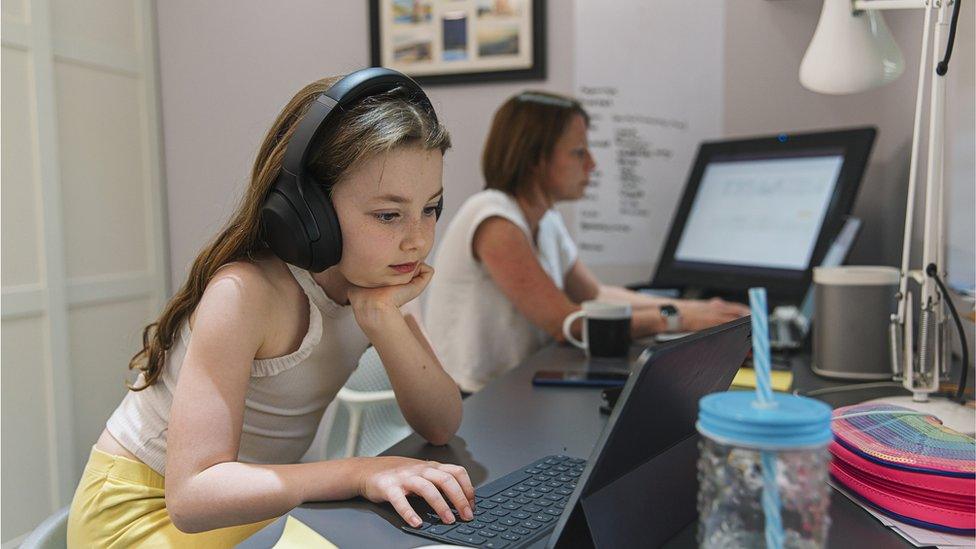
Home schooling will continue for a while longer for many parents
Northern Ireland has been in lockdown for almost eight weeks and restrictions have now been extended again until the start of April, external.
Stormont ministers say they want to keep driving down infection rates so that the eventual reopening is much more sustainable.
BBC News NI explains what's behind those decisions, and what is set to change soon.
Why is the lockdown being extended?
The Stormont Executive backed a proposal from Health Minister Robin Swann to extend the bulk of restrictions for another four weeks.
The measures were already in place until 5 March, but following a review ministers agreed "reluctantly" to keep them in place until 1 April.
For now, that means many family gatherings remain prohibited, people must continue to work from home - in many cases - and should not leave their home without a "reasonable excuse", such as to buy food, medical supplies or take exercise.
Although daily case numbers have been falling and pressure within hospitals is reducing, ministers have been advised that lifting restrictions now would undo much of the progress made in the past two months.
First Minister Arlene Foster said there is also a "growing concern" about new variants of the virus, with the more transmissible Kent variant now thought to account for about 70% of Covid-19 cases in Northern Ireland.
Stormont sources point to the Republic of Ireland, where restrictions were eased before Christmas and the emergence of the new variant led to a huge spike in cases - something the executive wants to avoid.
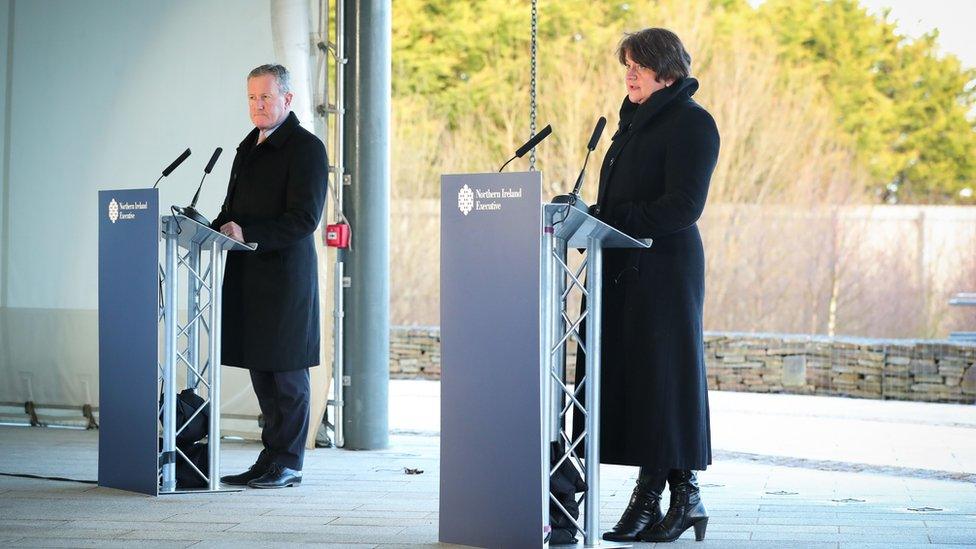
Conor Murphy and Arlene Foster outlined the extended restrictions
They also want to prevent a rise in infections that could be caused by allowing people to meet up over traditional holidays - Mother's Day (14 March) and St Patrick's Day (17 March).
They will review the lockdown restrictions again on 18 March, and if progress has continued by then, there is the possibility we could see some more slight easements.
What about schools?
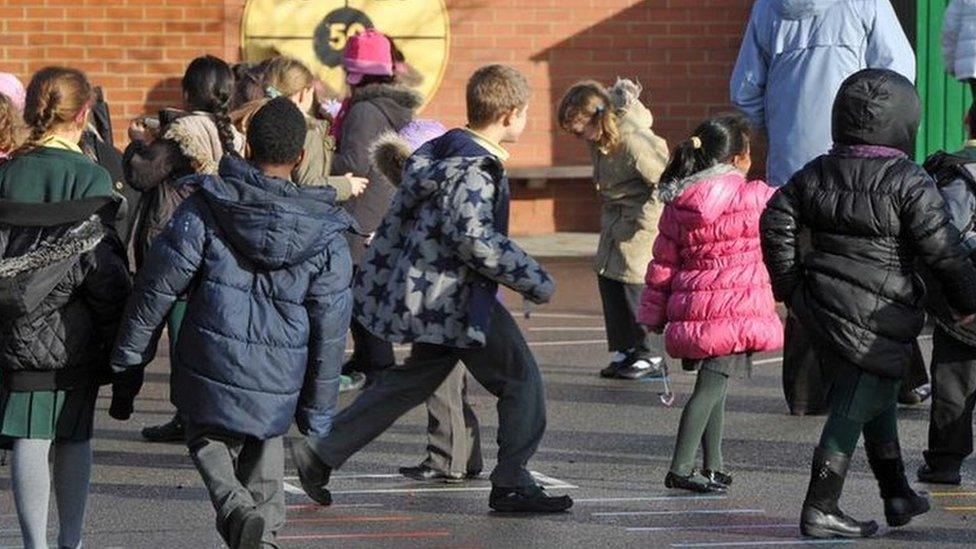
The picture is complex, but ministers plan to begin a phased return of some students from 8 March.
That day will see children in primary 1 to primary 3 (aged four to seven) returning to classrooms.
Students doing qualifications including GCSEs, AS, A-levels (in Years 12 to 14) and other vocational qualifications will return to face-to-face teaching from 22 March.
The executive said in order to ensure that two large cohorts are not back before Easter, pre-school nursery years children and those in primary 1 to primary 3 will then have remote learning during the week of 22 March, before the Easter break.
Ministers say their "clear intention" is to get all remaining students back into classrooms after Easter but they warn it has to be balanced with public health advice.
Mrs Foster said having looked at medical evidence, transmission of the virus was higher among older children, but she added that those students who were due to sit exams - which have now been cancelled - need to be assessed for replacement grades, and needed to be given priority to return.
Children of key workers and vulnerable children who have been allowed to attend school during the lockdown will be permitted to continue attending even when the first face-to-face teaching resumes.
Who can I meet up with?
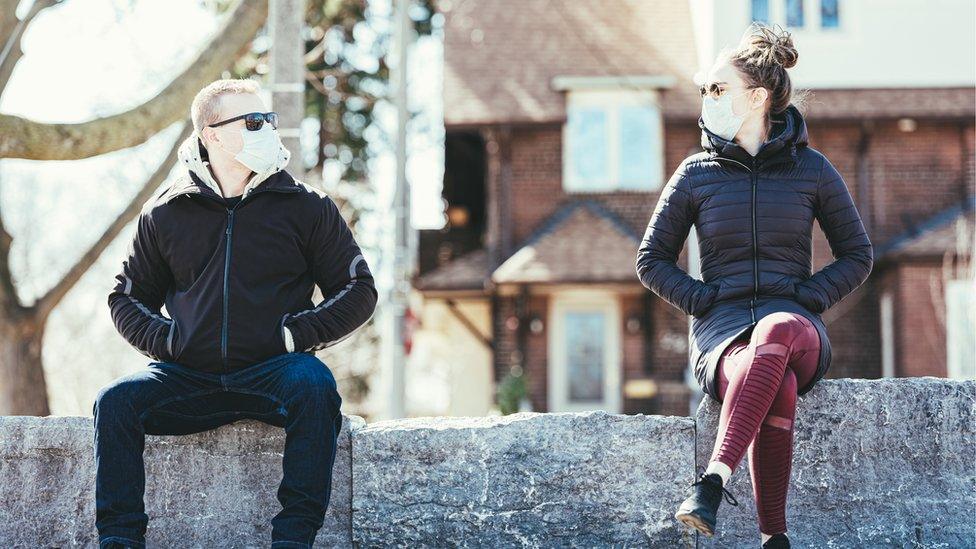
At the moment, very little is changing on that front.
People still can't meet others outside their own household indoors, unless they are part of a support bubble.
Meeting up in private gardens isn't allowed either, but people can still take exercise with one other person outside their household.
Gatherings in an outdoor public space are currently limited to six people from two households.
But from 8 March, the executive says that will rise to 10 people from two households.
What about the Easter holidays?
The executive has extended restrictions to 1 April, the day before Easter holidays begin - but they say people should not get their hopes up for any major relaxations that weekend.
Rather, ministers have warned that although the numbers are going in the right direction this will be "a slow re-entry into normal life".
Finance Minister Conor Murphy said he didn't believe there would be any serious easing of restrictions around Easter and he advised people not to make plans.
"I would advise people not to be booking anything, not to be looking at 1 April as when everything opens up again," he said.
Is anything changing with retail?
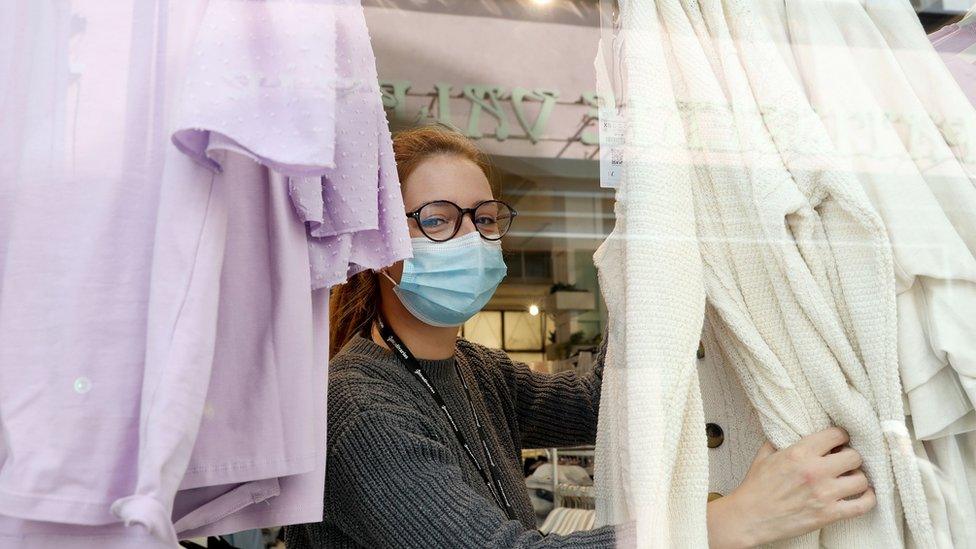
Non-essential retail shops have to stay closed during the lockdown.
But contactless click-and-collect services are being restored for some retailers from Monday 8 March.
Currently only essential retailers such as supermarkets are allowed to offer click-and-collect.
The executive has agreed to extend it to baby equipment shops, clothing shops, footwear shops and electrical goods shops.
Economy Minister Diane Dodds said it was a "cautious but welcome step" that would provide a measure of protection to smaller independent businesses, while at the same time easing footfall within larger retail outlets.
When will we know the plan for exiting lockdown?
All eyes will be on the Stormont Assembly on Monday 1 March.
First Minister Arlene Foster and Deputy First Minister Michelle O'Neill will lay out the executive's pathway-to-recovery blueprint.
It is not expected to include indicative dates, with Mrs Foster saying it would be "data-led".
The executive's priority is to maintain Northern Ireland's reproduction rate of the virus - or R-number - below one.
They have said careful, slow steps will be required to ensure Northern Ireland can exit lockdown sustainably.
Ministers will also have to consider the long-term effects of keeping restrictions in place on the economy and people's well-being.
However, compared to last year's first lockdown - there is a major difference now - as Northern Ireland has a well-established vaccination programme.
The key message from Stormont remains that the fight to suppress coronavirus must continue, with hope for a way out ramping up later in the spring.
Related topics
- Published18 February 2021
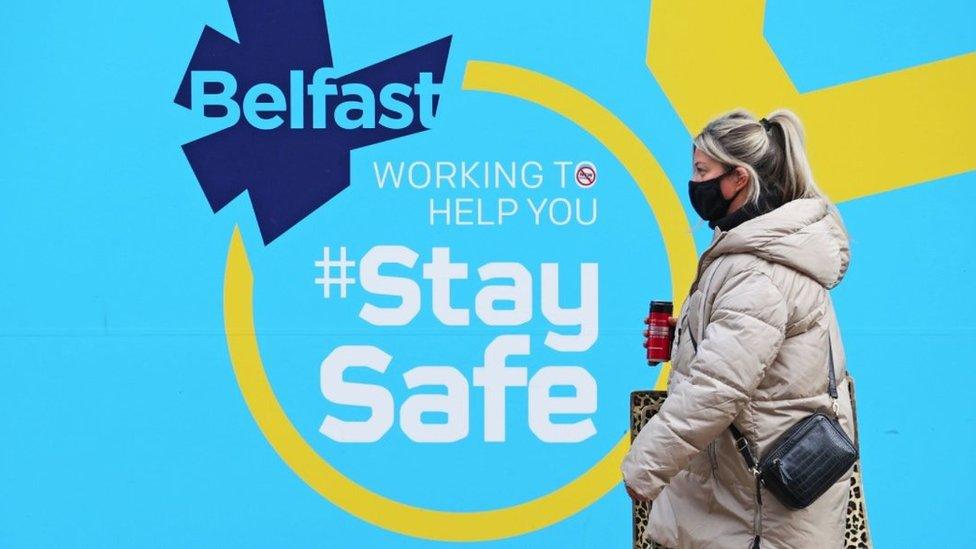
- Published1 July 2022

- Published18 February 2021
